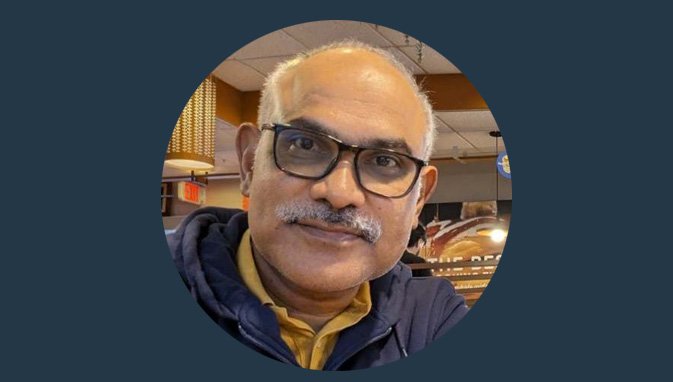
As India celebrates its 76th Republic Day, we reflect on a momentous journey that began on January 26, 1950 - the day India adopted its Constitution and declared itself a sovereign, democratic republic. This day is a vibrant reminder of the resilience and commitment that has carried the nation forward.
India is one of the oldest civilizations in the world with a 5,000-year history. When we transitioned to democracy, we embarked on one of the largest political experiments in world history - to establish democracy in a country with immense diversity.
We have been greatly successful in maintaining democracy. We remained united despite our vast cultural, linguistic, and regional diversity. We did that peacefully, without resorting to violent conflict or civil wars and without losing our rich heritage and cultural diversity, which is a great feat.
In addition, our relentless focus on economic development, social progress, and international engagement has played a central role in shaping our global position today. Over the decades, India has emerged as a global leader in information technology, pharmaceuticals, automative manufacturing, textiles, space exploration, and renewable energy, while addressing critical challenges such as poverty, education, and healthcare.
Swarnim Bharat: Virasat aur Vikas
This year’s theme, “Swarnim Bharat: Virasat aur Vikas” beautifully encapsulates the essence of this dual journey: honoring our rich heritage while embracing progress and innovation.
Republic Day is not just a celebration of the past, but also a reaffirmation of the democratic values that underpin our Constitution. India's Constitution promises four core principles: Justice, Equality, Liberty, and Fraternity. However, India faces significant challenges in realizing these ideals. Public services and policies often fall short in ensuring equity across socio-economic lines. For example, wealthier urban individuals often have better access to education, healthcare, and justice, while the poorest are left behind. The journey to realizing true democracy, where every citizen experiences justice, equality, liberty, and fraternity daily, remains an unfinished task.
Digital Technology – the Enabler and Accelerator
At Digital Bharat Collaborative (a part of Piramal Foundation), our view is that digital technologies are a powerful tool in realizing the ideals enshrined in our Constitution. Digital tools can enhance transparency and accountability, ensuring justice at every level of governance. It can achieve equality across socio-economic divides – e.g. digital education platforms bring high-quality learning resources to underserved areas. Digital platforms can empower citizens with access to information, enabling them to participate meaningfully in decision-making processes. Liberty thrives when individuals can make informed choices.
Social media and digital communication amplify diverse voices, strengthening fraternity and unity. Platforms for community engagement enable diverse groups to share ideas and work toward common goals. Decentralized systems promote fraternity by empowering local governance and giving every community a voice.
Towards a Vikasit Bharat - Transformation at the Last Mile
Technology is key in improving government effectiveness, accountability, efficiency, and agility. With digital tools, resources can be monitored and issues addressed more efficiently, improving service quality. Agility, especially in crises like the COVID-19 pandemic, is critical, and technology allows for faster responses by providing real-time data across districts.
Take the case of frontline health workers who have been equipped to use digital apps like ANMOL & Utprerona in states like Bihar and Assam to strengthen Reproductive, Maternal, Newborn, Child, and Adolescent Health (RMNCH) services. Mundrika Kumari, Auxiliary Nurse & Midwife at Banka district, Bihar, says, “When ANMOL was introduced, I found it difficult to use the new technology. With the help of training on how to use ANMOL, I can now use the App confidently and take better care of mothers and children in the area.”
The good news is that we are making significant progress in our journey towards a digitally empowered nation. The “Digital India” initiative has been a game-changer in bridging the digital divide, ensuring that even remote and underserved communities have access to digital services that were once out of reach. E-governance platforms like Health Online Parameters Evaluation (HOPE) in Uttar Pradesh have played a pivotal role in enhancing transparency and accountability within government processes. HOPE, under the purview of the Directorate of Medical and Health Services, Uttar Pradesh, has gone a long way in strengthening governance, fostering data democracy and driving efficiency in quality health service delivery across all 75 districts of the state.
As we celebrate Republic Day 2025, let us recommit to using technology as a means to uphold and advance the principles of justice, liberty, equality, and fraternity. Together, let us build a Swarnim Bharat where heritage and development go hand in hand, where every citizen can thrive in a truly democratic society.
About Rajasekhar Kaliki
Raj is a technologist with over 30 years of global work experience in building software products, running technical support operations, digital transformation, developing business partnerships, and leading high-performance teams.
He possesses a unique blend of experience working for Fortune 500 companies like Google, Netapp, and Cisco, and for the Indian nonprofit sector. He is the Chief Technology Officer at Piramal Foundation.
TAGS
SHARE





